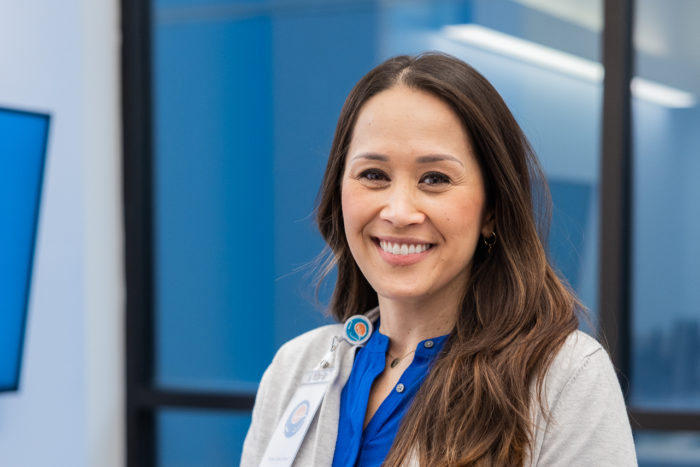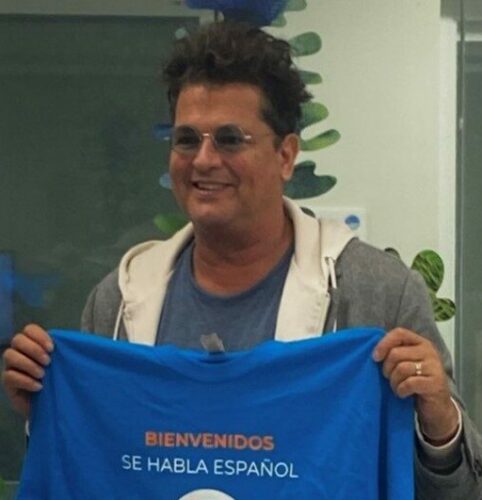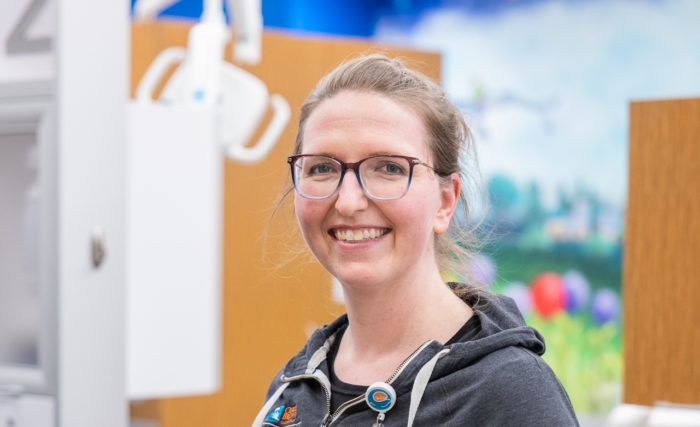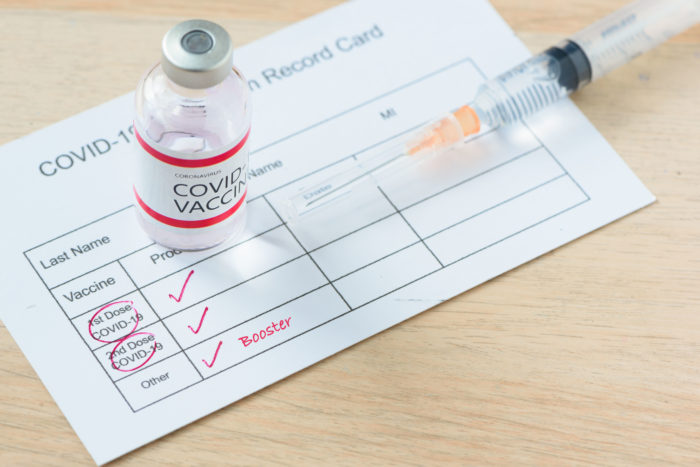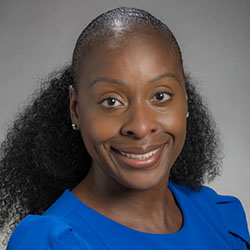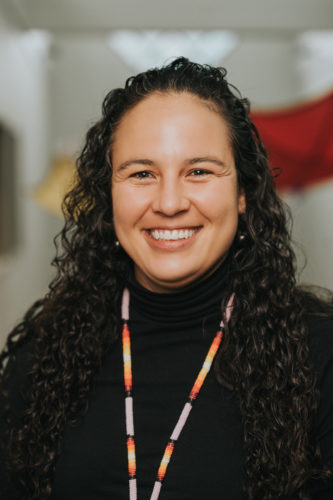A three-part series featuring the medical directors at OBCC focused on integrating care and building community together This is part three of a three-part series. In prior weeks, On the Pulse featured Dr. Kenisha Campbell and Dr. Kari Sims. As a Pacific Northwest native, Dr. Christen Manangan always dreamed of working in the Seattle […]
Read in Spanish below. Leer en Español más abajo. Carlos Vives, Colombian singer, songwriter and actor, paid a special visit to Seattle Children’s on Tuesday, September 20 to learn about our efforts to provide inclusive care for children and patient families whose first language is Spanish. Vives has been an international figure for decades […]
Every year, people around the country observe September as Suicide Prevention Awareness Month to shine a light on mental health care and bring awareness to suicide, a topic many find difficult to discuss. Dr. Alysha Thompson, the clinical director and psychologist on the Psychiatry and Behavioral Medicine Unit (PBMU) at Seattle Children’s, shares ways that […]
A three-part series featuring the medical directors at OBCC focused on integrating care and building community together This is part two of a three-part series. Last week, Dr. Kenisha Campbell was featured. Next week, On the Pulse introduces Dr. Christen Manangan. When Dr. Kari Sims walks through the clinic doors of Seattle Children’s Odessa Brown Children’s […]
On Thursday, September 8, 2022, Building Cure was lit up in honor of National Childhood Cancer Awareness Month. As part of the celebration, Seattle Children’s Foundation and Guild Association hosted an event at the space to recognize and thank donors who support pediatric cancer care and research. It was also an opportunity for supporters to […]
Seattle Children’s has appointed Dr. Eric Tham as its new senior vice president and chief research operations officer. Tham will focus on research administration, finance, operations and continue broader research leadership, effective immediately. Since 2021, Tham has served as interim senior vice president of Seattle Children’s Research Institute. “I’m excited to help guide the research […]
Beginning today, Seattle Children’s is offering the new Pfizer COVID-19 bivalent vaccine booster. It will be available to patients, community members and workforce members. We will begin offering the new bivalent Moderna vaccine booster later this week. The Centers for Disease Control and Prevention (CDC) recommends the updated COVID-19 boosters from Pfizer-BioNTech for people ages […]
A three-part series featuring the medical directors at OBCC focused on integrating care and building community together This is part one of a three-part series. Next week, meet Dr. Kari Sims and Dr. Christen Manangan. Dr. Kenisha Campbell is the medical director of Clinical Operations at Seattle Children’s Odessa Brown Children’s Clinic (OBCC) and is […]
Parents often find themselves with countless questions about tantrums. What are they? Is this normal? When will my toddler grow out of this? How should I respond? To help provide guidance, Dr. Mollie Grow, a pediatrician at Seattle Children’s, discusses what caregivers should understand about toddler tantrums and addresses some of the most common misconceptions.
Dr. Shaquita Bell of Seattle Children’s Odessa Brown Children’s Clinic (OBCC) has been awarded 2022 Physician of the Year by the AAIP.

